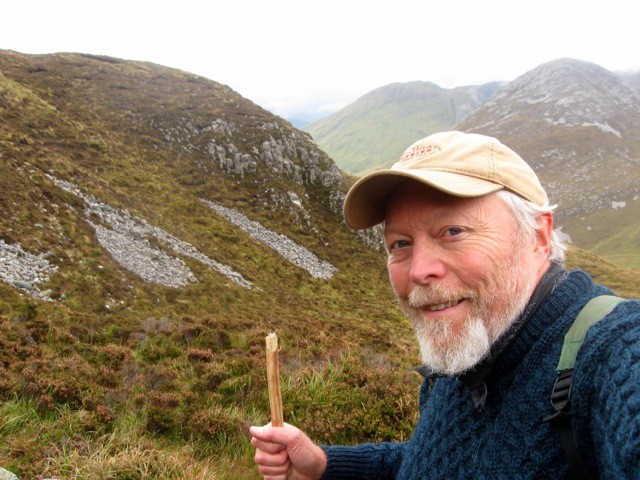If It Only Was That Simple: The Illusion Of Explanatory Depth

When faced with overwhelming, frightening and ultimately complex problems we tend to search for simplistic answers. Perhaps this is an adaptive attempt originating in the deep part of our brain known as the amygdala, where fear triggers our survival instincts (and our flight/fight/freeze response). In our ancestral days near our cave, taking action to freeze, run or fight like hell often served us well. Today, however we are faced with other stimuli that, despite our rationalizations and euphemisms to the contrary, actually do scare us just as much, but in a different way. No longer fleeing Saber-toothed Tigers, today, instead we face frightening foes like global climate change, racism, war and peace, extremist politics and chronic disease.
To combat these foes, we again seek the fastest, and therefore simplest responses that attempt to be solutions. Overly simplistic thinking causes us to latch on to attractive answers that seem to bring us some semblance of relief from the anxiety of overwhelm and the fear of the unknown. We generalize, minimize and seek solace in some quoted study that showed that ten people did one thing, one time, and now are healthy and safe for life. Eat low fat. Eat high fat. Don’t exercise…just drink wine! Chocolate could be one of your basic food groups!
“Psychological scientists have a name for this easy, automatic, simplistic thinking: the illusion of explanatory depth. We strongly believe that we understand complex matters, when in fact we are clueless, and these false and extreme beliefs shape our preferences, judgments and actions—including our votes.” (http://www.psychologicalscience.org/index.php/news/full-frontal-psychology/extremist-politics-debating-the-nuts-bolts.html)
 Just diet & exercise...not so simple.
Just diet & exercise...not so simple.
In healthcare and wellness we take something as supremely complex as weight management and leave our critical thinking hats off as we search for some magical Thor’s Hammer that will strike down obesity, diabetes and heart disease with one swift (and don’t forget easy) blow. If it only was that simple!
As a University Counseling Center Psychologist I worked with a great number of victims of rape and abuse. I observed how victims would astonishingly blame themselves and go through a time of attempting to feel safer by saying “If only I hadn’t been in that place at that time”, or “If only I had been doing this instead of that”. The health and wellness equivalent may be when we seek out lifestyle practices that we hope will insulate us from disease and misfortune. I’m not talking about basic health-risk reduction here, but rather the way people grab on to simple all-or-none thinking about diet, exercise, stress management practices, etc. We think that kale, mindfulness, Yoga, coconut oil, or a new Fitbit will be our single-track savior. We want the comfort of the “illusion of explanatory depth”.
Everyday, when we look harder at the research, and that means going back to what we learned in Psychology or Sociology 101 about basic research, we can sift through all of the contradictory data and at least conclude that there is nothing simple about wellness, health and especially challenges like healthy weight management. In this internet-based age we are continually bombarded with headlines sprung from single studies with incredibly small “n’s”. Changing what we eat based on the success of seventeen people who dined while standing on one leg how we are urged to take action by headline-grabbing authors.
We all know how hard it is to get rid of cockroaches once they infest a place. Research publicity sometimes creates myths that persist just as tenaciously. In a brilliant recent blog (https://www.linkedin.com/pulse/beware-cockroach-effect-faulty-data-die-jon-robison?trk=hp-feed-artic) Jon Robison gives us more evidence about not trusting sketchy “evidence”.

“The Cockroach Effect is certainly not limited to weight-related research. Dr. John Ioannidis has spent his career exposing the personal biases, economic pressures and downright bad science that plague medical research. In a seminal paper in PLoS Medicine in 2005 with the intriguing title, “Why Most Published Research Findings Are False,” he presented a model which predicted correctly that 80% of non-randomized studies, 25% of randomized trials and 10% of large randomized trials were refuted by later research. While we expect contradictions as part of science, Ioannidis also found that even when faulty research was debunked, its conclusions typically persisted for years or even decades. The details of his fascinating findings are explored in an article entitled “Lies, Damned Lies and Medical Science” which appeared in the Atlantic Magazine in November 2010.”
As tempting as it is to look for quick relief in simplistic answers, we must take a deep breath and know that health and wellness is a marathon, not a sprint. The progress may be found in a combination of studying both how we change, and how we maintain change.
This June at The National Wellness Conference (http://www.nationalwellness.org/?page=NWC2016) one of the breakout sessions I will be presenting is Coaching for a Lifetime of Wellness: Integrating the Keys to Sustainable Behavioral Change. We’ll look at how to shift our thinking from short-term outcomes to the only kind of study that really counts – the longitudinal study of one’s lifetime. There is a lot to explore about how to help people make lifestyle improvements that will have to last for the entire rest of their lives. The problems we face are multi-causal. The answers we seek need to be holistic and thorough. As many of you have heard me say “I did not write a book entitled “Wellness Coaching For Temporary Lifestyle Change." See you in St. Paul, Minnesota this June!

Be well! Coach Michael
The first rule of sustainability is to align with natural forces, or at least not try to defy them. Paul Hawken








Only registered and logged in readers can leave comments.